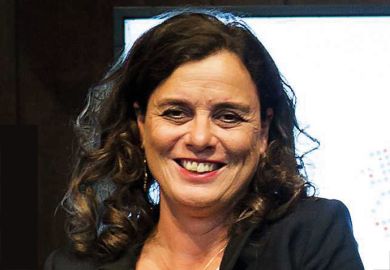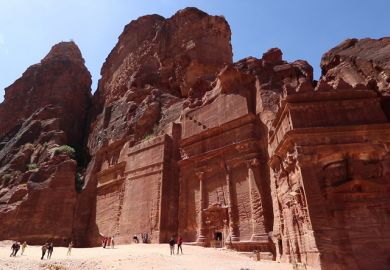Digging the Dirt is an exquisitely written labour of love, part history of archaeological thought, heavy on dirt (reporting risqué interpretation) and part personal voyage. Clearly wallowing in the romance of the past, the author gleefully shares her adventures and intellectual awakenings, from Helen's Troy to the politically charged excavation of the Sea Peoples' town of El-Ahwat in Israel. Along the way, the reader is buffeted by Sir Walter Scott, Adolf Hitler and the philosophy of Michel Foucault, not to mention the immorality of the Marquis de Sade. But are the stories of the interplay between past and present mere titillation for a society of curtain-twitchers?
Absolutely not. Jennifer Wallace proves fascinated by how modern man imagines his sense of history and place within the landscape and the soil. Hot on the heels of post-processual archaeology that encourages creativity and personal subjectivity in interpreting the past, Wallace proposes a fresh approach to imagining antiquity: a poetics of depth.
Inspired by the 40-year-old philosopher Gaston Bachelard, this concept grapples with how we imagine our heritage, which is all the more important because we are increasingly "losing a sense of history and inhabit instead a plurality of surfaces". Wallace argues for retaining a commitment to the rights of desire, to the poetics of depth and to the "aura" that differentiates what lies beneath our modern living surfaces, what is there now and what happened in between.
The interplay between fact, fiction and imagination is examined through several case studies that illuminate how Wallace is perhaps more fascinated by the resonance of lessons from the past and the poetry of the excavation than by scientific truth. Nowhere is this clearer than in the case of Heinrich Schliemann, who turned up to excavate Troy in 1870 allegedly with only Homer's Iliad to guide him, and proceeded to fanatically to uncover the very words of the Iliad in his ruins.
While some critics supported his vivid fantasy world, elsewhere Schliemann stood accused of unbalanced imagination. But did this matter beyond the rarefied halls of academia? As his-tory proved, it definitely did - in the end not because of his obsession with Homer but through his recovery of pots and figurines decorated with several hundred swastika symbols. In 1884 he interpreted this salvation symbol as the emblem of a specific Aryan race stretching back to Trojan times. A few decades later, this pseudoscientific, racially prejudiced theory was pounced on by Hitler to forge the theory of Germany's racial origins and purity.
Extremist interpretation aside, Wallace's treatment of mortuary archaeology more aptly reflects her enthusiasm for harnessing the imagination. From empty Bronze Age barrows in Wiltshire to Ground Zero in New York, "the bedrock encapsulates the tragedy and allows the 'rest', as Hamlet would say, to remain as 'silence'" - that presumably can be only reconstructed in the mind's eye.
The unyoking of the imagination has huge advantages for society's interest in antiquity. Certainly, in the current climate of academia, the obsession with scientific objectivity has generally eroded interest in archaeology, and if universities manage to make such a romantic subject seem dry, then something is terribly wrong.
Digging the Dirt is less about archaeology and more an examination of humanity - an enthralling, clever and accessible read that would be thought-provoking for the uninitiated public, and a wise prospect for undergraduates wishing to counterbalance mainstream theoretical preconceptions.
Sean Kingsley is managing editor, Minerva .
Digging the Dirt: The Archaeological Imagination
Author - Jennifer Wallace
Publisher - Duckworth
Pages - 220
Price - £14.99
ISBN - 0 7156 38 7
Register to continue
Why register?
- Registration is free and only takes a moment
- Once registered, you can read 3 articles a month
- Sign up for our newsletter
Subscribe
Or subscribe for unlimited access to:
- Unlimited access to news, views, insights & reviews
- Digital editions
- Digital access to THE’s university and college rankings analysis
Already registered or a current subscriber?



